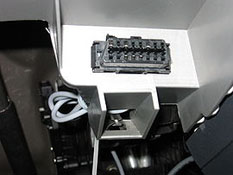
If your not a gear head, you might be surprised to know that modern cars roughly starting in 1990 have a On-Board Diagnostics that can be read by a hand held reader effectively allowing a person to ask a car… what have you been up to?
Mandated by the Federal Government in 1996 all cars sold in the US are required to have an On-Board Diagnostic (OBD) system in place. This OBD system must provide a standardized OBD connector within arms length of the driver’s seat and when connected to provide decipherable codes that report on the vehicles basic functions.
I carry a OBD scan tool and when performing a late model inspection will access the OBD data and see what the car “knows”.
There are 2 categories the car will tell me about. Stored codes and Pending codes.
Stored codes are the ones that set off the idiot lights on the dashboard telling you something is wrong. The idiot light can be either a yellow cautionary light telling you to get your car serviced.
Pending codes are stored in the cars computer and depending on the frequency of the occurrence could turn into a stored code. The issue has to be reoccurring a pre determined number of time in a certain period. These pending codes are of particular interest on a used car for several reasons.
You can use a basic OBD scan tool to erase OBD data and start over fresh. If the problem persists, the codes will be pending until the idiot light goes off. Most cars also provide a “All systems pass” code if he car has gone through a predetermined number of on-off cycles with no reported problems. Most scan tools will not decipher the codes for you so you have no idea what the code means and will need know the difference between a all systems pass code and a real problem.
Prior to driving a late mode pre-inspection I connect to the OBD connector and ask the car have you been reset lately? If all systems are good, that’s half the battle. If the car replies that it hasn’t passed yet, it tells me someone is hiding something and cleared the OBD data.
I then drive test drive the car and when I’m finished I ask the car again, how are things now? Cars don’t lie….
Whether private party or at a dealership I have found issues by scanning the OBD data that have saved the potential owner not only money, but the time it takes to address these issues after you have bought the car. Taking it in for service, time off work, getting rental or loaner car etc.
If your buying a used car, ask the car what it’s bee up to and it will tell you. If you can’t read the OBD data find someone who can and decipher the codes provided. Question if there are no codes, why?
Protect Your Investment. Have it Appraised!

 To request an appraisal, please complete the sections below:
To request an appraisal, please complete the sections below: